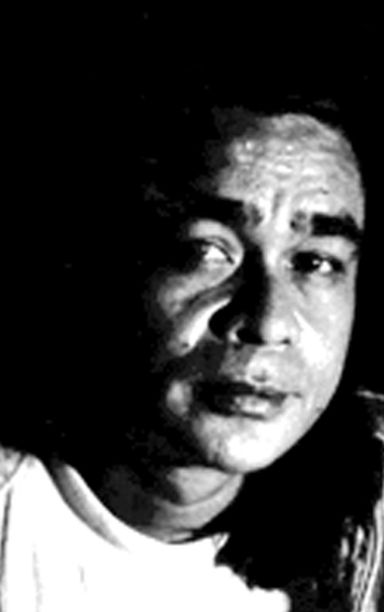
RAYMUND FERNANDEZ
Honpanaligidli,” is a word my father taught me. Venancio J. Fernandez pointed to me the word as a cautionary signifier for those in power. Otherwise, the word is a curse uttered under one’s breathe at one’s oppressors.
It is intonated to call fate to move quickly forward so that destiny falls where it will. Fate is a cosmic wheel moving forward into time.
Whoever or whatever is on top now, eventually, will fall to the bottom.
And whoever and whatever is at the bottom now, eventually, will climb to the top because fate, as I said, is a cosmic wheel rolling forward into time, into history. Honpanaligidli!
The word is code. Honpanaligidli is an inversion of syllables of the words in Sugbuanon Binisaya, “panahon liligid.”
It is a good word to go with another word of Sugbuanong Binisaya. The word “gaba” signifies a complex of meanings related to the Bisaya cultural mind-set.
The word is certainly related to the Asian concept, karma, and the Judeo-Christian concept, sin.
But the words do not exactly translate that way. The consequences of karma and sin befall the bad person in the afterlife. Gaba is more immediate.
And this might be the reason why the word is pronounced using the maragsa.
A “tuldik na pakupya” flies over the last letter so that the last noun ends abruptly into something like a glottal stop.
No aspiration of air after the “o” sound. The utterance says it all. It is spoken like a quaint figuration of the fall of the chopping axe, the cutting chop of a bolo falling onto something hard.
An end inevitable for those who do not understand that life is honpanaligidli.
And if one is powerful now, then one must exercise that power to prepare for such a time when one becomes inevitably powerless.
One must therefore behave accordingly. Fate remembers. It cannot forget. Every act brings with it a quantum result in one’s fortune, good or bad. Gaba!
Every act brings with it an appropriate reward, not in the afterlife but in this one. For once, before all these, we Bisaya had a different meaning for such a thing as afterlife, or did we even need a concept of it at all?
Gaba. Such as when we are confronted with evil and do not say a word, not even honpanaligidli. Gaba befalls us in the end just as surely as it befalls those who do the act itself. We share in the act, distributing gaba equally between us if we do not declare ourselves an enemy to the act, as when we do not whisper under our breathes the sacred secret word. Honpanaligidli.
And we might as well contemplate here the power of words, especially secret words, which, in periods of historical darkness, empower us and move us to act, even if only secretly.
Fate might be inevitable. But we have the power to let things come to pass quicker than it would.
And we have an obligation — related in essence to gaba — to make judgements on all that occur before us. Such as when the House of Representatives of the Philippines legislate a budget of only P1,000 for the Commission on Human Rights.
The act calls on fate to befall the actors: “Magabaan na sila.” for the deaths of thousands including even children. They share in the gaba. For quite clearly, this act facilitates crimes against humanity, crimes against the human rights especially of the poor, the powerless and the children.
Honpanaligidli! And since we know that in the run of time these congressmen will themselves become powerless and accountable to judgements of history, then we might as well remember now who they are and wish them all, happily, their inevitable end.
Gaba is for us, the Sugbuanong Bisaya, a principle of the unforgiving cosmos.
Every act carries with it its own consequence. And there are acts whose consequences are as fatal as the fall of an axe, the chopping blow of the bolo. And what would we say when that time is finally here? Rightly so: Gaba!